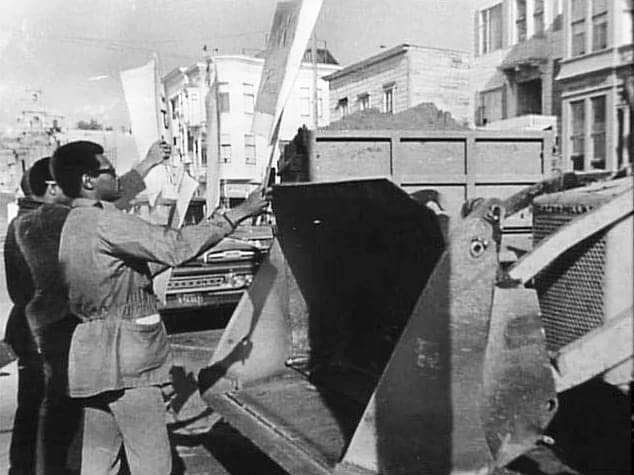
by Julian Davis and Ed Donaldson
It is a rare occurrence in the history of the struggle for civil and human rights when the moral imperative, political will and legislative means to accomplish a substantive measure of justice all converge. The development of 5,842 affordable housing units under SB 593 SF Replacement Housing Act presents just such an opportunity at a time of growing public support for reparations.
The City of San Francisco has always had the moral duty and ethical obligation to repair the damage caused by redevelopment. With the recently convened African American Reparations Advisory Committee delivering recommendations to the City government for repairing harms done to San Francisco’s Black communities, the political will has never been greater. Moreover, the persistent work of community activists advising the Office of Community Investment and Infrastructure (OCII) has effectively transformed the Certificate of Preference (COP) program, a program that was designed to fail, into a vehicle for long overdue justice.
Now, all lineal descendants of redevelopment displacees qualify for first preference for City administered affordable housing units. The following steps must be taken to ensure that potential beneficiaries are empowered to settle in new homes in our City. First, a sine qua non (an essential condition) is to set aside all replacement units under the SF Replacement Housing Act for this population.
Second, where there is no other form of proof, we require a policy allowing for sworn affidavits to substantiate a person’s relationship to historically displaced house holders. Previously, it has been far too difficult – and the bar has been set impossibly high – for qualified parties to receive their certificates of preference. Third, the COP program must transition to the newly proposed Office of Reparations for the focused attention and administration it requires.
With these three bedrock policies and procedures in place, the interests of all parties (the City government, affordable housing developers, and community stakeholders) will be aligned in service of repairing intergenerational harms wrought by redevelopment. If we fail to accomplish this, we consign another generation to the vicious sting of empty promises. In addition, the following seven points complete our 10-point proposal to provide adequate resources to the community of current and future COP holders.
- Compile an economic impact report on the intergenerational wealth lost through eminent domain from 1945 to the present. Black Developers Forum to present a plan for financing and developing the 5,842 replacement units.
- Create a COP Community Land Trust to represent affordable housing and economic development interests of COP holders in developing 5,842 replacement housing units and reinstituting 883 displaced COP businesses.
- Maintain the same income levels and/or AMI categories as at the time of displacement.
- Obtain HUD funding to assist with housing homeless and displaced COP holders.
- Use relational credit reporting to buy or rent affordable housing.
- Create down payment and rental assistance funding and programs for COP holders.
- Obtain COP Small Sites & Small Business Programs acquisition funding and technical support.
CALL to ACTION
The next OCII Commission meeting to establish an equitable policy framework for the SF Replacement Housing Act (SB 593) is on Tuesday, Oct. 17, at 1 p.m. The commission’s final vote on the matter will be on Tuesday, Nov. 7, at 1 p.m.
Please email or call the commission stating that you support the COP Committee’s community vetted 10-point plan to implement the Certificate of Preference Program. If possible, please also sign or have your organization sign a copy of this letter for entry into the record at the upcoming commission meetings. You can direct emails, letters and phone calls to:
Office of Community Investment and Infrastructure
1 South Van Ness Ave., 5th Floor, San Francisco, CA 94103 commissionsecretary.ociI@sfgov.org, 415-749-2408
In solidarity,
Julian Davis & Ed Donaldson
Co-signed by:
_________________________
Attorney Julian Davis and Economic Development Professional Ed Donaldson, along with Oscar James and Richard Hashimoto, advise the San Francisco Office of Community and Investment and Infrastructure (OCII) on the OCII COP Committee. To reach the writers, email julian@telegraphlaw.com and ed@universalsoldier.org.





